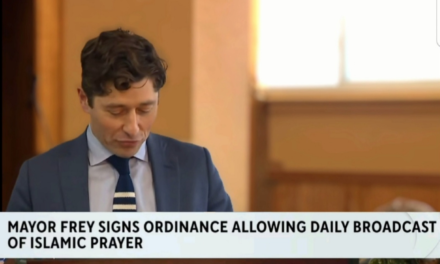by Ayesha Ashrafi
Contemplate for a moment, if tonight were to mark your final hours, if Angel Azrael were to descend upon you, and you were to be buried in your grave, what thoughts and emotions would prevail in your mind? What insecurities would flood your consciousness?
Your heart would be engulfed in an abyss of darkness, your spirit would be consumed by the shadows of despair, and fear and devastation would take hold on your thoughts!
But why? Why is it that we, as a society, constantly focus on the ominous aspects of death and the grave, harping on the punishments and chastisements that await us in the afterlife? Why are we constantly threatened by its foreboding presence, yet the blessings and bounties of the afterlife are so seldom spoken of? Why do we not consider the possibility of mercy and blessings from Allah subhanahu wa ta’ala?
Is it not possible that our merciful Creator may also show compassion and forgiveness, rather than solely punishment?
As Muslims, we are aware of the inevitability of death and the existence of an afterlife, yet the fear of the grave persists. What, then, is the cause of this fear, if not our own perceptions and perspectives? It is understandable that the prospect of the unknown can elicit feelings of fear and uncertainty. But perhaps, instead of fixating on the negative possibilities, we should take solace in the belief that death is but a transition to a greater realm. Why is it that when we speak of death and the grave, we always focus on the negative aspects—the retribution of the grave? Why are we constantly threatened by the idea of death, but are never told of the blessings and salvation that come with it? Why do we persist in believing that our Creator will only seek to punish us, and not show us mercy?
As Muslims, we are cognizant of the fact that death is an inescapable reality, and that there is an afterlife awaiting us—one where we will be returned to our Lord and the judgment He bestows upon us.
“Every soul will taste death. Then to us will you be returned.” (Surah Al ankabut- ayat 57)
Then why don’t we talk about the perks of the grave? Why don’t we say that it will be a day of great joy and splendor; for it will be a day where we are reunited with our Creator? Where we will finally get to see Allah Subhanahu wa Ta’ala.
Why are we not told that upon departing from this world, we enter the embrace of Al-Rahman, whose mercy and love are immeasurable? And when the questioning in the grave is finished for the faithful, they will be led to paradise with such grace and beauty.
“Then a crier will call from Heaven: My servant has spoken the truth, so spread a bed for him from Paradise, clothe him from Paradise, and open a door for him into Paradise. So some of its air and perfume will come to him, and a space will be made for him as far as the eye can see.” (Sunan Abi Dawud 4753)
Upon the passing of a virtuous person, all of their loved ones who have preceded them in death will rush to greet and welcome them with open arms. The Prophet Muhammad ﷺ said, “This meeting will be more joyful than when you meet someone dear to you in the world after a long separation. And they will ask him about the people of the world. Among them, one of them will say, “Let him rest. He has come from the sorrows of this world.”
Why do we not speak of death as a continuation of life, a portal to true and eternal blessings? Why do we conceal the fact that the soul is captive in the body, only to be liberated through death and ushered into the beautiful realm of Aalam-e-Barzakh, free from the constraints of time and space? Why do we perceive death as a separation from loved ones, a source of grief and sorrow, rather than as an opportunity to reunite with our ancestors, friends, and righteous souls?
For the believer, death is a blessing, and the grave is a gateway to higher realms. In comparison, this world is but a fleeting shadow of the splendor of the Hereafter. The transition from the prison of this world to the gardens of paradise, from the chaos of physical life to a world of rest and spiritual elevation, from the distressing noise of creation to the presence of the Most Merciful, is a journey to be coveted above all else.
The Quran reminds us that attachment to this world is futile and that true understanding of the universe and our place in it can only be found in submission to Allah subhanahu wa ta’ala. Yet, there are those who reject the blessings of paradise and deny the existence of an eternal afterlife. It is a sad truth that these so-called liberals and atheists, lost in their misguided beliefs, will never know the joys of paradise and make a mockery of Allah’s benedictions. Let it be known that Allah subhanahu wa ta’ala will judge us as we have judged ourselves, and our fate will be determined by our deeds.






Recent Comments